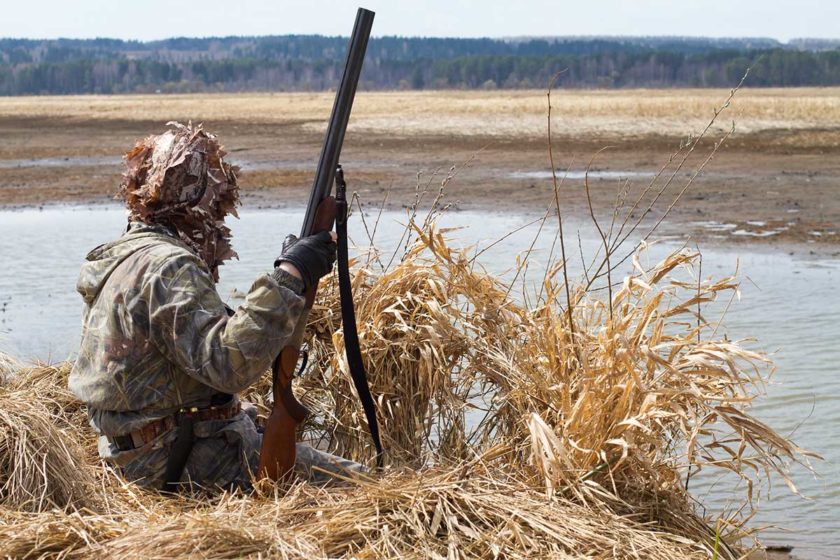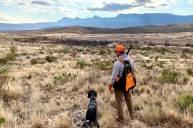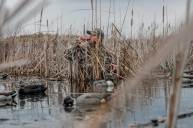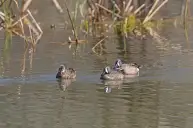A solo duck hunting trip to an unfamiliar area can be an intimidating endeavor for a beginner.
There are so many things to keep track of, and if you are short on time, you have to find a good spot to hunt before ever showing up. But if you know your way around a duck blind and are planning a duck hunting trip, do you really need a guide or outfitter? Or can you do it yourself?
First of all, you don't need a guide or an outfitter to have a good duck hunting trip. Will it increase your chances to hire one? Sure, but as long as you are a competent waterfowler, you conduct research on the area you are hunting, and you talk with local hunters in the area, you can certainly have a successful duck hunting trip.
Let's take a closer look into how you can create a great hunting trip without the help of an outfitter.
Know The Basics
This might sound self-explanatory, but you need to know how to effectively hunt ducks if you're going to go on a duck hunting trip without a guide. Guides often provide the luxury of doing lots of work ahead of time, and will talk you through the process to make it easier. If you're committing a rookie mistake, they can correct things and still get you on birds. When you're not using a guide, you don't have that extra support.
It's in your best interest to figure out the basics of your setup in a local area before going on a trip. If you have not done a lot of duck hunting alone, there are inevitably going to be hiccups. I have been doing it for years, and things still go wrong every now and again. However, the best way to avoid them on a big trip is to have already faced them on one of your many shorter trips to a local spot.
Make sure that you're comfortable with all of your gear and can fix minor issues as they arise. Practice with your shotgun before the trip and make sure you're on target. Get comfortable rigging and setting your decoys on your own. Make sure your waders aren't leaking and that you pack enough appropriate apparel. Practice with your calls regularly and perfect them before you commit to a hunting trip.
These fundamentals impact a success rate no matter where or when you're hunting. Master them, and you've taken a big step towards accomplishing a fruitful outfitter-less hunting trip.
Research The Area
Using online hunting forums and aerial maps (like those created by onX Hunt), you're going to need to research the land you'll be hunting. If you go into a trip completely ignorant of the area, you're setting yourself up for an unsuccessful situation.
When I'm looking for a new duck hunting spot, I always look for places that ducks are already going to be flying over. Try to find waterfowl refuges (or wildlife refuges in general) near where you intend to hunt. A lot of the time, you will find public hunting areas close to those refuges, sometimes even directly connected to them. These spots are likely to offer some of the best duck hunting in the area.
Also, look for spots in public land that no one else is willing to go. Ducks are smart animals and get used to avoiding easily accessible areas of public hunting grounds. You might have a long hike with a lot of gear, but it will almost always pay dividends in the long run.
One of my best duck hunting spots is about a 45-minute hike back through woods and marsh. I have to travel across a creek that almost goes over my waders, and then down a steep muddy drop-off, often in pitch black, predawn hours. It's a hard one to get to and from, but I almost always limit out when I go there.
Talk To The Locals
If you're lucky enough to be hunting on a private hunting ground, then the best thing you can do is talk to the landowner. They are often more than willing to help you out by giving you pointers about duck hunting in the area. Maybe the birds tend to fly more in the evenings, or maybe they fly more when it's raining. Every area is different, and it's good to know the quirks related to the ducks in the area you'll be hunting.
What if you're hunting public land? Well, I would still suggest talking to locals, but you might be talking to people from a general region instead of the exact land you're hunting on. If I'm hunting an area I've never hunted before, I go on Facebook and find a group for hunters of a specific state and species. For example, I'll search for "Mississippi Duck Hunters" or if I'm planning to hunt the Magnolia State.
Once I'm accepted into the group (they're usually protected groups that require approval from administrators), I post a question along these lines: "I'm planning a trip to duck hunt in southeastern Mississippi. Does anyone have any advice about hunting that area?"
Most of the time the people in these groups are friendly and more than willing to help out. Don't expect them to hand out the GPS coordinates to specific hunting spots, but as far as general tips go, they will almost always help.
Who knows, you might even make some hunting friends who wind up joining you on your trip. That's the best case scenario, because combining efforts with hunters who know the area better than you is akin to being with a guide. Just keep an open mind, remain respectful, and interact with the folks in that community. You'll be surprised how well it can work out.
Get A Game Plan Together
When you're hunting close to home, a lot of us fall into somewhat of a routine for duck hunting, and just kind of "wing it" each time we go out. This doesn't work when you're going on a hunting trip in a place you've never been.
You need to have a plan mapped out well ahead of time, one that includes several different hunting locations depending on wind, weather, and accessibility. I like to have at least three possible locations before I even leave for the trip.
If you've never been there before and you have no way of scouting it out beforehand, it's hard to know exactly what a spot will look like until you arrive (especially if you show up in the darkness before first light). Having backup plans ensures that you can make at least one of them work. Get to your spot early enough that you can improvise and move if needed, well before it's time to hunt.
The first trip may be the toughest, but once you get out there and really see what it looks like, you will have a much better chance of finding birds on the next hunt. Your experience will compound every hunt, and next time you will not be heading to the blind quite so... blind.
Try your best and adjust your strategy and expectations as you go. You'll have a lot more fun and learn a whole lot more this way. You'll certainly gain more knowledge and experience than you ever would having a guide drive you to a spot, sit you in a blind, and wait for the ducks to show up.
Make It Happen
Trust me, I'm not trying to ignore the truth. If a "successful duck hunting trip" for you involves a limit each time you go, with little effort and nearly zero self-taught learning experiences, then a guide or outfitter is going to pretty much be a necessity.
But if you're willing to accept the fact that success can come in different shapes and forms, then it's completely possible to make it happen.
It can be intimidating setting up your first unguided duck hunting trip, but if you take the proper measures to know your gear, build your skills, and plan your trip with intent, you can still bag some birds.
While having a solid plan in place is important, the biggest thing is to remain flexible. Things are not going to always go your way on hunting trips; equipment can break, maps can be deceiving, or the ducks could just refuse to show up. make sure you can adjust your strategy as you go, and don't be afraid of changing spots altogether.
If going on an unguided duck hunt is something you're interested in, there's little standing in the way of making it happen. It is a feat to try and walk onto a property you have never been on at 6:00 a.m. and come out successful, but it can be done. Plus, every time you go back, you will gather more and more information that can help you on future hunts.
Just remember, if that first hunt doesn't work out so well, it doesn't have to be deemed a failure. Instead, look at it as a learning experience, the exact kind that can make you a better hunter in the long run.
NEXT: DUCKS UNLIMITED JUST CELEBRATED ITS 85TH YEAR OF WATERFOWL CONSERVATION




